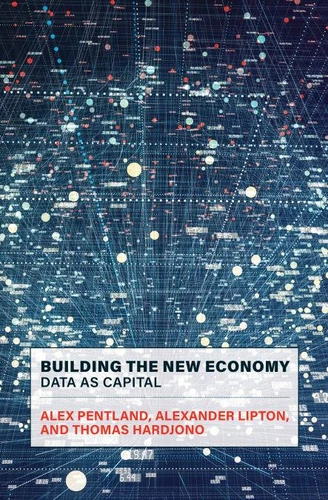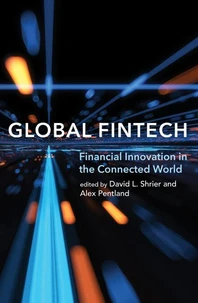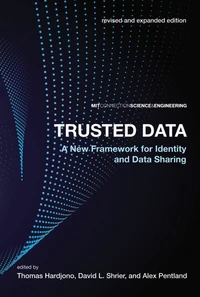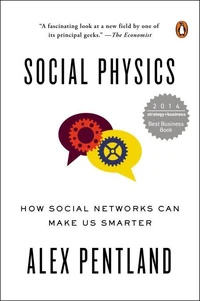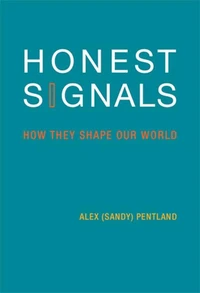Building the New Economy. Data as Capital
Par : , ,Formats :
E-Book
E-Book disponible
Disponible dans votre compte client Decitre ou Furet du Nord dès validation de votre commande. Le format ePub protégé est :
- Compatible avec une lecture sur My Vivlio (smartphone, tablette, ordinateur)
- Compatible avec une lecture sur liseuses Vivlio
- Pour les liseuses autres que Vivlio, vous devez utiliser le logiciel Adobe Digital Edition. Non compatible avec la lecture sur les liseuses Kindle, Remarkable et Sony
- Non compatible avec un achat hors France métropolitaine
 , qui est-ce ?
, qui est-ce ?Notre partenaire de plateforme de lecture numérique où vous retrouverez l'ensemble de vos ebooks gratuitement
Pour en savoir plus sur nos ebooks, consultez notre aide en ligne ici
- Nombre de pages474
- FormatePub
- ISBN978-0-262-36741-7
- EAN9780262367417
- Date de parution12/10/2021
- Protection num.Adobe DRM
- Taille10 Mo
- Infos supplémentairesepub
- ÉditeurMIT Connection Science & Enginee...
Résumé
How to empower people and communities with user-centric data ownership, transparent and accountable algorithms, and secure digital transaction systems. Data is now central to the economy, government, and health systems-so why are data and the AI systems that interpret the data in the hands of so few people? Building the New Economy calls for us to reinvent the ways that data and artificial intelligence are used in civic and government systems.
Arguing that we need to think about data as a new type of capital, the authors show that the use of data trusts and distributed ledgers can empower people and communities with user-centric data ownership, transparent and accountable algorithms, machine learning fairness principles and methodologies, and secure digital transaction systems. It's well known that social media generate disinformation and that mobile phone tracking apps threaten privacy.
But these same technologies may also enable the creation of more agile systems in which power and decision-making are distributed among stakeholders rather than concentrated in a few hands. Offering both big ideas and detailed blueprints, the authors describe such key building blocks as data cooperatives, tokenized funding mechanisms, and tradecoin architecture. They also discuss technical issues, including how to build an ecosystem of trusted data, the implementation of digital currencies, and interoperability, and consider the evolution of computational law systems.
Arguing that we need to think about data as a new type of capital, the authors show that the use of data trusts and distributed ledgers can empower people and communities with user-centric data ownership, transparent and accountable algorithms, machine learning fairness principles and methodologies, and secure digital transaction systems. It's well known that social media generate disinformation and that mobile phone tracking apps threaten privacy.
But these same technologies may also enable the creation of more agile systems in which power and decision-making are distributed among stakeholders rather than concentrated in a few hands. Offering both big ideas and detailed blueprints, the authors describe such key building blocks as data cooperatives, tokenized funding mechanisms, and tradecoin architecture. They also discuss technical issues, including how to build an ecosystem of trusted data, the implementation of digital currencies, and interoperability, and consider the evolution of computational law systems.
How to empower people and communities with user-centric data ownership, transparent and accountable algorithms, and secure digital transaction systems. Data is now central to the economy, government, and health systems-so why are data and the AI systems that interpret the data in the hands of so few people? Building the New Economy calls for us to reinvent the ways that data and artificial intelligence are used in civic and government systems.
Arguing that we need to think about data as a new type of capital, the authors show that the use of data trusts and distributed ledgers can empower people and communities with user-centric data ownership, transparent and accountable algorithms, machine learning fairness principles and methodologies, and secure digital transaction systems. It's well known that social media generate disinformation and that mobile phone tracking apps threaten privacy.
But these same technologies may also enable the creation of more agile systems in which power and decision-making are distributed among stakeholders rather than concentrated in a few hands. Offering both big ideas and detailed blueprints, the authors describe such key building blocks as data cooperatives, tokenized funding mechanisms, and tradecoin architecture. They also discuss technical issues, including how to build an ecosystem of trusted data, the implementation of digital currencies, and interoperability, and consider the evolution of computational law systems.
Arguing that we need to think about data as a new type of capital, the authors show that the use of data trusts and distributed ledgers can empower people and communities with user-centric data ownership, transparent and accountable algorithms, machine learning fairness principles and methodologies, and secure digital transaction systems. It's well known that social media generate disinformation and that mobile phone tracking apps threaten privacy.
But these same technologies may also enable the creation of more agile systems in which power and decision-making are distributed among stakeholders rather than concentrated in a few hands. Offering both big ideas and detailed blueprints, the authors describe such key building blocks as data cooperatives, tokenized funding mechanisms, and tradecoin architecture. They also discuss technical issues, including how to build an ecosystem of trusted data, the implementation of digital currencies, and interoperability, and consider the evolution of computational law systems.

